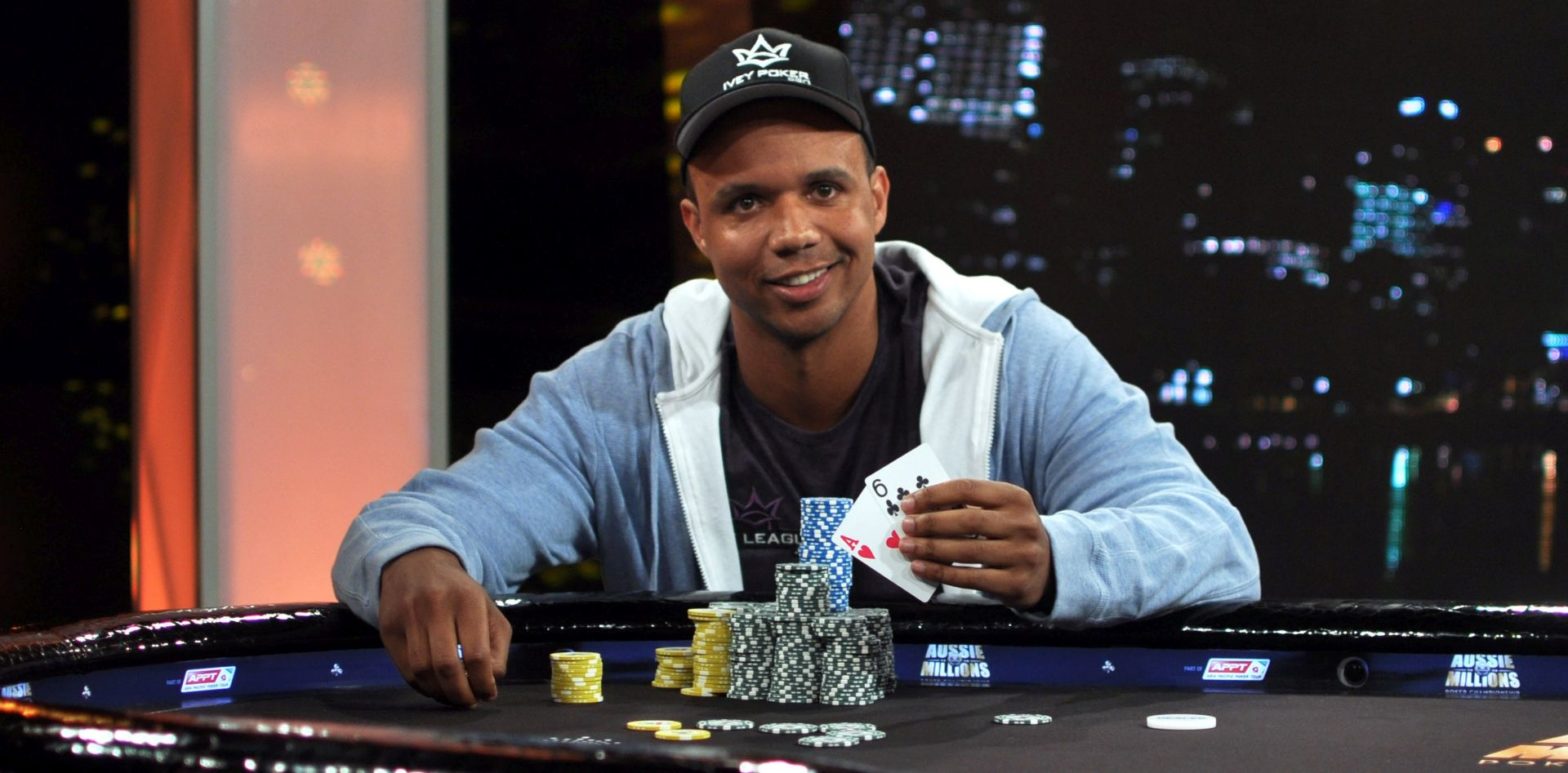If it’s a legal story of any sort involving Phil Ivey, you know it’s going to be complex and likely to span several years. That’s the case with Ivey’s investment into one of the many Las Vegas cannabis-dispensary startups that hit the ground running in 2014, but encountered several business difficulties over the ensuing years.
As a result, Ivey’s $1.9 million credit-line investment in NuVeda, LLC is likely up in smoke, after NuVeda’s filing for federal Chapter 11 bankruptcy protection. In its filing, NuVeda listed up to $10 million in debt while claiming less than $50,000 in assets, meaning that there’s likely to be nothing there for Ivey to claim.
And that’s if he’s even able to cement his claim anyway. Ivey is one of three significant investors or business partners whose claims against NuVeda are declared as both unsecured and disputed. A fourth significant claim, for over $2 million, has already been court-arbitrated in favor of a separate interest.
Ivey claims to have owned 3% of NuVeda
But as always, wherever Ivey is involved, there are always some special twists to the story. Ivey’s investment into NuVeda didn’t appear to be a good deal for him on its face. In exchange for that $1.9 million credit line, Ivey received what was to be a relatively miniscule 3% share in the company.
Then, as part of the complexities of this case, NuVeda’s primary execs “disappeared” Ivey’s share of the company. According to later court filings, Ivey’s 3% ownership share simply didn’t exist. That led Ivey to file suit against NuVeda in 2020, and since that lawsuit remains unresolved, it’s why Ivey’s creditorship claim is disputed within NuVeda’s recent bankruptcy filing.
Could Ivey’s battles with New Jersey’s Borgata casino have any relevancy to the situation? That’s a tough situation to read. Yet there are two separate and curious factors at least worth mentioning. First, Ivey didn’t sign up as in investor in NuVeda until 2014, and that’s after Ivey’s mini-baccarat-based lawsuits, with both the Borgata and with London’s Crockfords casino, came into existence. In the New Jersey / Borgata matter, Ivey eventually faced a court judgment of more than $12 million, including several years’ worth of accumulated interest.
Ivey eventually settled for what was (probably) significantly less than that $12 million, but he was potentially on the hook for the entire amount. The Borgata also showed itself willing to chase after any assets of Ivey’s that could be identified, and the Borg even filed the New Jersey judgment for the $12 million into the Nevada legal system as a precursor into identifying and filing liens against any Ivey assets found there.
Since there doesn’t seem to be any record of the Borgata’s legal efforts identifying Ivey’s ownership interest in NuVeda, it’s fair to ask, why didn’t they? Was Ivey’s official ownership scrubbed from NuVeda’s records as a way to hide that interest from the Borgata? I have no knowledge about this whatsoever. However, given the way the timelines of the two separate Ivey situations were commingled for years, it’s absolute legitimate to at least wonder about the how and the why regarding the Borgata never finding out.
NuVeda’s corporate partner violated Nevada marijuana-dispensary laws
Ah, but there’s still more. Despite the investments of Ivey and others, NuVeda appears to have been no more than a second-tier player as Nevada’s legal-marijuana market opened up. NuVeda joined forces with another dispensary startup, CWNevada, where CWNevada had the larger ownership share and physically operated most of the outlets that the joint business opened across greater Las Vegas.
Then, CWNevada ran into a whole big pile of trouble with Nevada regulators. In 2019, the company was discovered to be millions of dollars in the red, had played fast and loose with its inventory records and bookkeeping (in direct violation of Nevada’s new marijuana-sales laws), had failed to pay its taxes to the state, and was even late in paying wages to workers and making promised health-insurance payments.
Predating NuVeda’s bankruptcy filing, CWNevada entered receivership in 2019 in an attempt to liquidate some of its assets and pay off its existing debt. Meanwhile, the lawsuits rolled in, from the jilted workers to suppliers of cannabis products, to its primary legal consultant, and of course its business partner, NuVeda. Since CWNevada was the legal entity doing the actual selling of the pot through its three retail outlets, it couldn’t file for bankruptcy directly, due to marijuana sales still being illegal under U.S. federal law. So CWNevada had to seek receivership protection instead.
It’s a complicated, tangled mess, which of course is your typical Ivey “legal” story as well. Other than the possibility, not proven or even evidenced, of the asset-shielding — which has become something of a moot point anyway — there’s no evidence that Ivey was involved in any of CWNevada’s or NuVeda’s marijuana shenanigans.
It’s still quite odd, however. Ivey is widely known throughout the poker and gambling worlds, however, for always managing to get the best of the bet, meaning odds laid versus the expected outcome. Here, though, with the investment into Nevada’s nascent legal-marijuana market, it looks like he made a bad read and may have joined up with some bad business partners as well.
Nevada’s legalization of marijuana is big business to be sure. In 2021, sales of legal pot in the state topped the $1 billion mark for the first time. But that’s gross revenue, not net profit, and there have been significant startup expenses and tons of competitors, all trying to jump into the same place at the same time. Despite the land rush, it was anything but guaranteed easy money, as CWNevada and NuVeda would learn.
As a result, what could have been a long-term, lucrative operation almost certainly won’t be, and Ivey is one of those who’s paying a significant price. Even the sharpest bettors don’t get every wager right, and the tale of NuVeda is certainly one that hasn’t gone Ivey’s way.
Featured image source: IveyPoker.com

